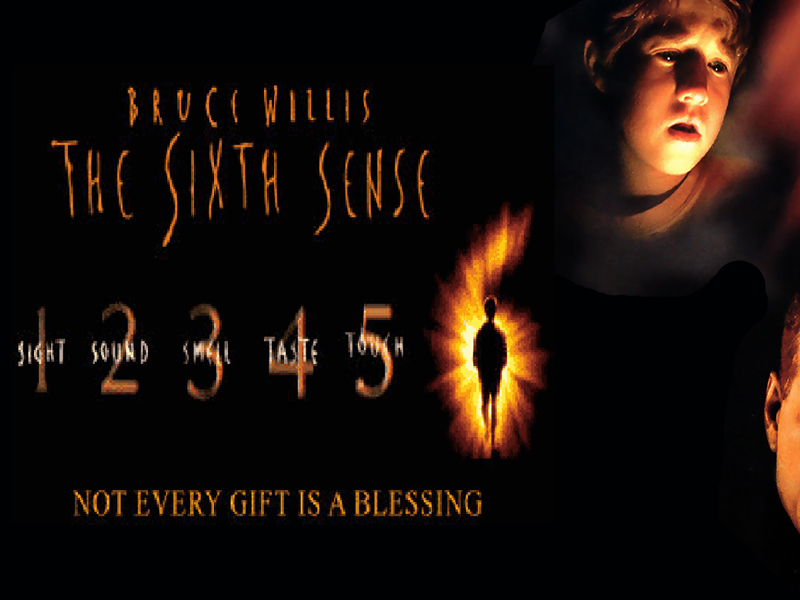Sometimes doctors stay troubled by a patient but are unable to rationally pinpoint the concern, writes Leon Piterman
The term “sixth sense” is widely used in our daily lexicon and usually refers to the perception that, from time to time, many, if not all of us, have some special notion or extrasensory perception that something untoward is about to happen.
That something might possibly be unpleasant, and the sixth sense gives us the capacity to avoid that occurrence. Of course, we possess more than the five senses of smell, taste, sight, hearing and touch. We sense pain, position, temperature, balance, and some believe that we have an electromagnetic sense which can predict changes in the weather. The Sixth Sense has also been the subject of a movie about ghosts, starring Hayley Joel Osment, Bruce Willis and our own Toni Collett.
The sixth sense is also a term used in clinical practice where it refers to the notion that the doctor is suspicious there is something seriously wrong with the patient, even though it is difficult to define based on history and examination. There is a sense that something may have been missed, or that the management may be inadequate or even inappropriate, and steps need to be taken urgently to correct this.
The doctor remains troubled, but is not able to rationally pinpoint the cause for concern.
The patient that I describe below serves to illustrate the dilemma and the role of the sixth sense in dealing with it.
Tom’s story
Tom was a 72-year-old retired boilermaker who lived with his 68-year-old wife. He was active in retirement, playing golf, fishing and going on long walks. Apart from a history of hypertension, well controlled on an ACE inhibitor, he had no other medical problems. He had been a smoker, but had stopped in his early 40s.
He came to see me late on a Friday afternoon at his wife’s insistence. He had told her that on his long walk the previous day he had tight chest pain which lasted around 20 minutes, and caused him to stop walking. It eventually eased and he continued. He had since felt tired, but had had no further chest pain or other symptoms.
On examination he looked well, was normotensive with a regular heart rate of 68b/m. However, an ECG showed evidence of ischaemia in the anterior chest leads. I arranged cardiac enzymes and troponin levels, which were phoned through to me several hours later and were normal. I prescribed aspirin and told him to see me again on Monday or call an ambulance if pain recurred.
I was scheduled to work at the clinic on Saturday morning. I woke with an uneasy feeling. Perhaps I was being too cavalier about Tom’s management. Maybe Monday was too far away and I needed to intervene earlier?
I decided to call in and do a home visit on Tom on my way to work. He was surprised to see me, although his wife expressed some relief at my visit. He had had another bout of chest pain during the night which lasted five minutes. Tom thought it was indigestion caused by the aspirin.
As I examined him he had a cardiac arrest. I began CPR while his wife called for an ambulance. He was resuscitated and taken to the local teaching hospital where he was stabilised, and subsequently had three stents inserted into blocked coronary arteries.
I have often reflected on my management of Tom. Should I have sent him to hospital on the Friday night? There was no evidence of an infarct. Would he have been admitted with his history? Would he have had an urgent angiogram?
Perhaps the answers to these questions are “yes”. It is clear that I remained troubled by these thoughts and no doubt they influenced me to undertake an unexpected home visit. Was it my sixth sense that something might be wrong, or was it simply common clinical sense to follow up earlier? Was it fortunate that I happened to be there when he had a cardiac arrest or did destiny, combined with a sixth sense, determine this favourable outcome?
There is little scientific evidence to support the notion of a sixth sense in general practice, but a study published by Hjertholm et al in the British Journal of General Practice, involving 404 Danish GPs and 4518 patients, showed that where the GPs were suspicious of cancer or other serious disease, investigations were twice as likely to reveal a serious cause for their concern than if they were not suspicious.
The authors recommend that GPs have urgent access to specialised investigation where there is an index of suspicion1.
So is clinical suspicion synonymous with a sixth sense? Maybe, or maybe not. But, regardless, my management of patients with chest pain of cardiac origin has changed for evermore.
Leon Piterman is Professor of General Practice at Monash University and has been in clinical practice for almost 40 years.
Reference:
1. Hjertholm P, Moth G, Ingeman ML, Vedsted P. Predictive values of GPs’ suspicion of serious disease: a population based follow-up study Br J Gen Pract 2014;64:346-353
Do you have similar professional experiences you would like to share? Please email: grant@medicalrepublic.com.au


